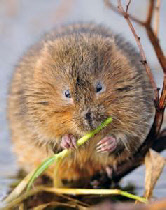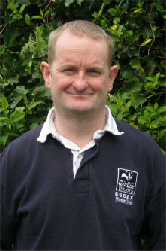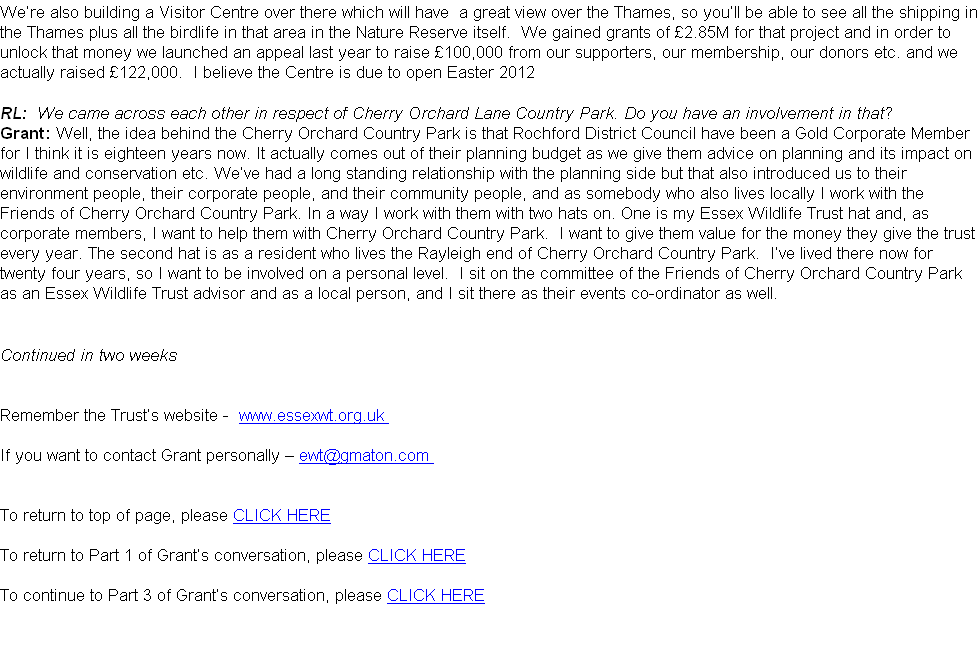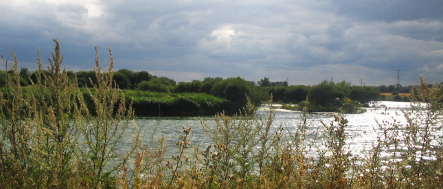

Make a point of visiting us weekly!
Organisations:
Essex Wildlife Trust
Essex Wildlife Trust

Essex Wildlife Trust,
Abbotts Hall Farm, Great Wigborough, Colchester, Essex CO5 7RZ
01621 862990
admin@essexwt.org.uk www.essexwt.org.uk
Registered Charity No. 21006
Abbotts Hall Farm, Great Wigborough, Colchester, Essex CO5 7RZ
01621 862990
admin@essexwt.org.uk www.essexwt.org.uk
Registered Charity No. 21006

RL: But you weren’t working in it?
Grant: That’s right. I was passionate about wildlife but I started working in a bank and I couldn’t see any way that I could make my hobby into a job. So I worked in investment banking up in London for twenty two years but I still had this passion for wildlife. My poor wife, my girlfriend at the time, had to put up with the fact that I had a vavarium in my dad’s shed, which is just a big tank with earth and plants and logs in and you keep lizards and slow worms and things like that in there. You shouldn’t do it now; with the benefit of hindsight, some of the things we did then we didn’t realise weren’t necessarily always helpful for wildlife, but even then as an amateur conservationist, anything in the vavarium I tried to breed and then release it back into the wild or keep it in my mum’s garden. I created a pond, and we had lots of things that benefited wildlife.
RL: That’s not the done thing now though?
Grant: No. Obviously now, with the pressure on those types of species you really can’t do it now, but it was a way of learning and in some ways it was good because I was able to touch a lot of species. Now, because they are so protected, you can’t actually touch them and you can’t even see them sometimes because people say, oh no, you can’t go into that area because you’ll disturb them.
RL: So what changed?
Grant: Eventually, about six years ago, my wife and I decided to make a lifestyle change. I was still working long hours in London, and she was looking to start her career and we just decided that we wanted to have more of a lifestyle balance; we wanted more time with the kids – my daughter was eight at the time and my son was six – and really build two jobs around them.
RL: So what did you do?
Grant: I gave up financial services and my wife said, what would you like to do, and I said I’d like to do something with Essex Wildlife Trust. I’d been a member since 1984 and I’d been passionate about wildlife since I was a child, and so I thought how do we give something back to that? We went onto their web-site and they were advertising for corporate officers. There was no salary, there was just commission. You would have no set hours and it was a case of do just whatever I wanted to do. It said sales experience would be helpful, and a knowledge of wildlife. Well obviously I’d come from a sales background in London, and I had the knowledge of wildlife for the last forty odd years. I also wanted a job that didn’t have set hours where I could choose the hours, so I went for this interview five and a half years ago and got the job.
RL: How did it work out?
Grant: Well, it has evolved from there, because I have built in my knowledge of wildlife, my sales experience, and looking at the corporate membership, and thinking about how I could join all of that up. As a result, in some ways, I’ve helped the corporate membership evolve by bringing in more of the networking side and more of the business angle, to get them thinking business to business, but at the same time if one of those corporate members have a passion for wildlife then I can switch from a pure business corporate salesman to being somebody who can talk about great crested newts or little egrets or water voles or anything like that.
RL: So you blend business and wildlife?
Grant: That’s right! I can switch between the two quite easily or I can have a blend of them both. With the company that joined this morning, they have young children and we talked about them going and visiting our wildlife reserve at Hanningfield. I was able to tell them about the wild nights out, the birthday parties their children can have at our Visitor Centre. One minute I am talking about that and the next minute talking about how to use your corporate logo to help you with marketing business.
RL: It sounds like you have the best of both worlds?
Grant: Yes, it’s nice because I now have that ideal job. I am now employed by the Trust and it has naturally evolved, because for the first three years I was on commission only, and I signed up all the big businesses in the Thames Gateway. Of course once you’ve signed them up, unless somebody comes in and takes over that business they are already on board and so where else do you go? I had had three years when I had enough to pay the bills and then it was going to tail off, so the fund raising team sat down and said what we need now is somebody who can communicate with the corporate members and take them to the next level.
RL: So how did that work?
Grant: We drew up a corporate communications officer role that is part time and doesn’t take much money out of the Trust, just enough to pay my bills, and it means I can build a relationship up with businesses and not feel that I am taking the money they are giving me as a donation, to pay me. It works out really well, so we can now look at the medium to long-term relationship with these businesses. If people are going to donate to a project, for instance, you’ve really got to invest the time and sit down with them and show them what the project is all about, and maybe bring their staff over to see the project and that, of course, takes time.
Grant: That’s right. I was passionate about wildlife but I started working in a bank and I couldn’t see any way that I could make my hobby into a job. So I worked in investment banking up in London for twenty two years but I still had this passion for wildlife. My poor wife, my girlfriend at the time, had to put up with the fact that I had a vavarium in my dad’s shed, which is just a big tank with earth and plants and logs in and you keep lizards and slow worms and things like that in there. You shouldn’t do it now; with the benefit of hindsight, some of the things we did then we didn’t realise weren’t necessarily always helpful for wildlife, but even then as an amateur conservationist, anything in the vavarium I tried to breed and then release it back into the wild or keep it in my mum’s garden. I created a pond, and we had lots of things that benefited wildlife.
RL: That’s not the done thing now though?
Grant: No. Obviously now, with the pressure on those types of species you really can’t do it now, but it was a way of learning and in some ways it was good because I was able to touch a lot of species. Now, because they are so protected, you can’t actually touch them and you can’t even see them sometimes because people say, oh no, you can’t go into that area because you’ll disturb them.
RL: So what changed?
Grant: Eventually, about six years ago, my wife and I decided to make a lifestyle change. I was still working long hours in London, and she was looking to start her career and we just decided that we wanted to have more of a lifestyle balance; we wanted more time with the kids – my daughter was eight at the time and my son was six – and really build two jobs around them.
RL: So what did you do?
Grant: I gave up financial services and my wife said, what would you like to do, and I said I’d like to do something with Essex Wildlife Trust. I’d been a member since 1984 and I’d been passionate about wildlife since I was a child, and so I thought how do we give something back to that? We went onto their web-
RL: How did it work out?
Grant: Well, it has evolved from there, because I have built in my knowledge of wildlife, my sales experience, and looking at the corporate membership, and thinking about how I could join all of that up. As a result, in some ways, I’ve helped the corporate membership evolve by bringing in more of the networking side and more of the business angle, to get them thinking business to business, but at the same time if one of those corporate members have a passion for wildlife then I can switch from a pure business corporate salesman to being somebody who can talk about great crested newts or little egrets or water voles or anything like that.
RL: So you blend business and wildlife?
Grant: That’s right! I can switch between the two quite easily or I can have a blend of them both. With the company that joined this morning, they have young children and we talked about them going and visiting our wildlife reserve at Hanningfield. I was able to tell them about the wild nights out, the birthday parties their children can have at our Visitor Centre. One minute I am talking about that and the next minute talking about how to use your corporate logo to help you with marketing business.
RL: It sounds like you have the best of both worlds?
Grant: Yes, it’s nice because I now have that ideal job. I am now employed by the Trust and it has naturally evolved, because for the first three years I was on commission only, and I signed up all the big businesses in the Thames Gateway. Of course once you’ve signed them up, unless somebody comes in and takes over that business they are already on board and so where else do you go? I had had three years when I had enough to pay the bills and then it was going to tail off, so the fund raising team sat down and said what we need now is somebody who can communicate with the corporate members and take them to the next level.
RL: So how did that work?
Grant: We drew up a corporate communications officer role that is part time and doesn’t take much money out of the Trust, just enough to pay my bills, and it means I can build a relationship up with businesses and not feel that I am taking the money they are giving me as a donation, to pay me. It works out really well, so we can now look at the medium to long-
Talking with Grant Maton, of Essex Wildlife Trust (Part 2)
Grant Maton is the Corporate Communications Officer for Essex Wildlife Trust. In a long conversation with Grant he explained the work of the Trust and his part in it. In this second part of the conversation he explains where this passion for wildlife care came from, and we see a good illustration of the impact a father can have on his children. He then goes on to share how some six years back the family decided on a major life change – a real challenge! Finally he talks about corporate projects and the Cherry Orchard Country Park. In the final part, on the next page, he speaks about the care that we can each take of wildlife on our own doorstep.
Rochford Life: Grant, can we move on to talk a little bit about you? Why are you doing this, what is your background that has brought you to this?
Grant Maton is the Corporate Communications Officer for Essex Wildlife Trust. In a long conversation with Grant he explained the work of the Trust and his part in it. In this second part of the conversation he explains where this passion for wildlife care came from, and we see a good illustration of the impact a father can have on his children. He then goes on to share how some six years back the family decided on a major life change – a real challenge! Finally he talks about corporate projects and the Cherry Orchard Country Park. In the final part, on the next page, he speaks about the care that we can each take of wildlife on our own doorstep.
Rochford Life: Grant, can we move on to talk a little bit about you? Why are you doing this, what is your background that has brought you to this?
Grant: Well, I was born in Rochford and my dad worked up in London as an Insurance Broker but his hobby was wildlife. His way of relaxing was to come home from a busy day and he would go out into the countryside. As soon as he had myself and my brother, we would go off with him and he would show us wildlife things and I, from the age of four or five, knew things about wildlife almost automatically without thinking about where I learnt if from.

RL: Are there local projects?
Grant: Yes, we’ve signed a piecrust lease over in Mucking which is a landfill site so the current company that is running it will be under law responsible for whatever happens to that waste underneath the soil once it is capped off, for methane or whatever else. We’re responsible with this piecrust lease for everything above the soil, so we’re looking to create a nature reserve, the Thurrock and Thameside Nature Park which is going to be a really fantastic project because we’re creating some habitats right from scratch.
Grant: Yes, we’ve signed a piecrust lease over in Mucking which is a landfill site so the current company that is running it will be under law responsible for whatever happens to that waste underneath the soil once it is capped off, for methane or whatever else. We’re responsible with this piecrust lease for everything above the soil, so we’re looking to create a nature reserve, the Thurrock and Thameside Nature Park which is going to be a really fantastic project because we’re creating some habitats right from scratch.
